For the last seven years of his life Morgan was on daily kidney dialysis. He received a kidney transplant in May 2021, but contracted an infection, and died on August 20, 2021 at the age of 63.
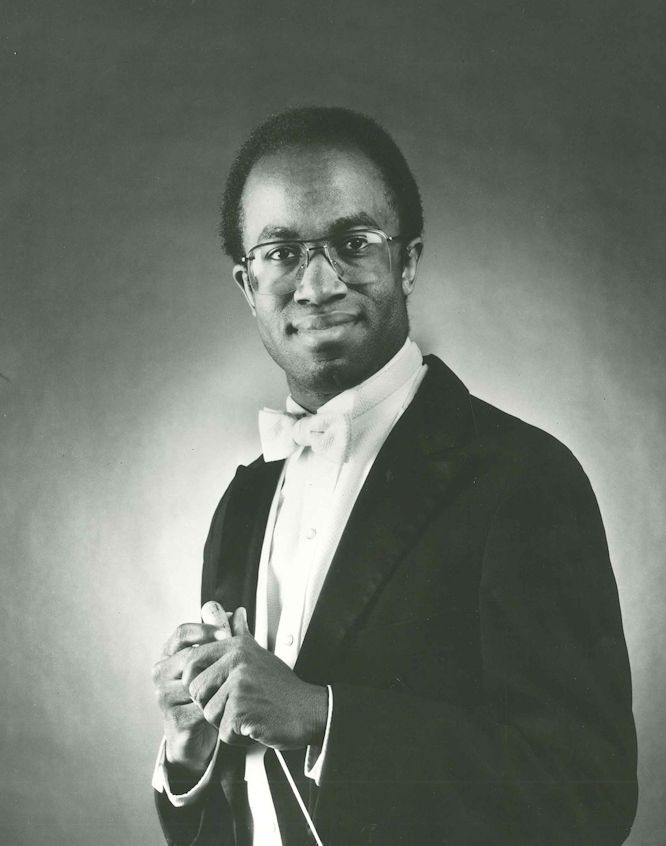
Michael Morgan in 1986 (Photo by Jim Steere)

|
The Chicago Symphony Orchestra family mourns the death of Michael Morgan, who died on August 20, 2021, in Oakland, California. Morgan served as assistant conductor of the Chicago Symphony Orchestra from 1986 until 1993. He was 63. "Michael Morgan was a very important part of the Chicago Symphony Orchestra," wrote Henry Fogel, who served as executive director and president of the Chicago Symphony Orchestra Association from 1985 until 2003. "As an assistant conductor, he gave a number of important performances, and he was an extraordinarily valuable part of the CSO's educational and community engagement programs. As one of the first African American conductors to achieve an important career, Michael was a true pioneer. His 30-year tenure as music director of the Oakland Symphony is a testament to his skills as a musician and a leader. I am deeply saddened to learn of his passing, which happened far too soon." In March 1986, Sir Georg Solti announced the appointment of Kenneth Jean as associate conductor and Michael Morgan as assistant conductor, beginning with the 1986–87 season: "I think we have found two young men with both musical and personal credentials that will be a great asset to the Orchestra in its important community programs." Less than a week after the announcement was made, Morgan joined the Chicago Symphony Orchestra — along with Solti and guest conductor Daniel Barenboim — on tour to Asia. He made his podium debut with the Civic Orchestra on April 10, 1987, leading Verdi's Overture to La forza del destino, Tchaikovsky's Violin Concerto with Michi Sugiura, Mozart's Symphony no. 36 and Ravel's La valse, and the following month, he made his debut conducting the Chicago Symphony Orchestra on a series of concerts for children. In late May 1987, Solti suffered a knee injury, causing him to cancel concerts in Chicago. Morgan was called upon to make an unexpected subscription concert debut on May 26, conducting two "of the most formidable works in the symphonic repertory, Richard Strauss's Ein Heldenleben and Stravinsky's The Rite of Spring, without benefit of rehearsal," according to John von Rhein in the Chicago Tribune. "The conductor was obviously well prepared. He kept his wits about him. He maintained a clear, steady beat. . . . This great ensemble was willing to provide the same, highly disciplined level of performance that it would produce for Solti or any famous guest conductor." Morgan continued to be a frequent presence on the podium, regularly leading subscription concerts, run-outs to Christ Universal Temple, youth and high school concerts and the Illinois Young Performers Competition. In November 1992, he led a concert version of Anthony Davis's X, The Life and Times of Malcom X.== Appreciation from the Chicago Symphony
Website.
== Another biography appears at the bottom of this webpage. == Names which are links on this webpage refer to my interviews elsewhere on my website. BD |
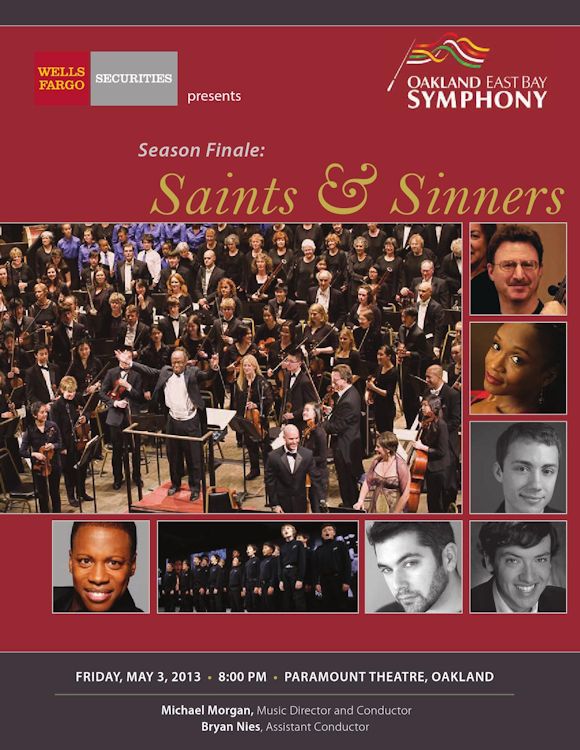
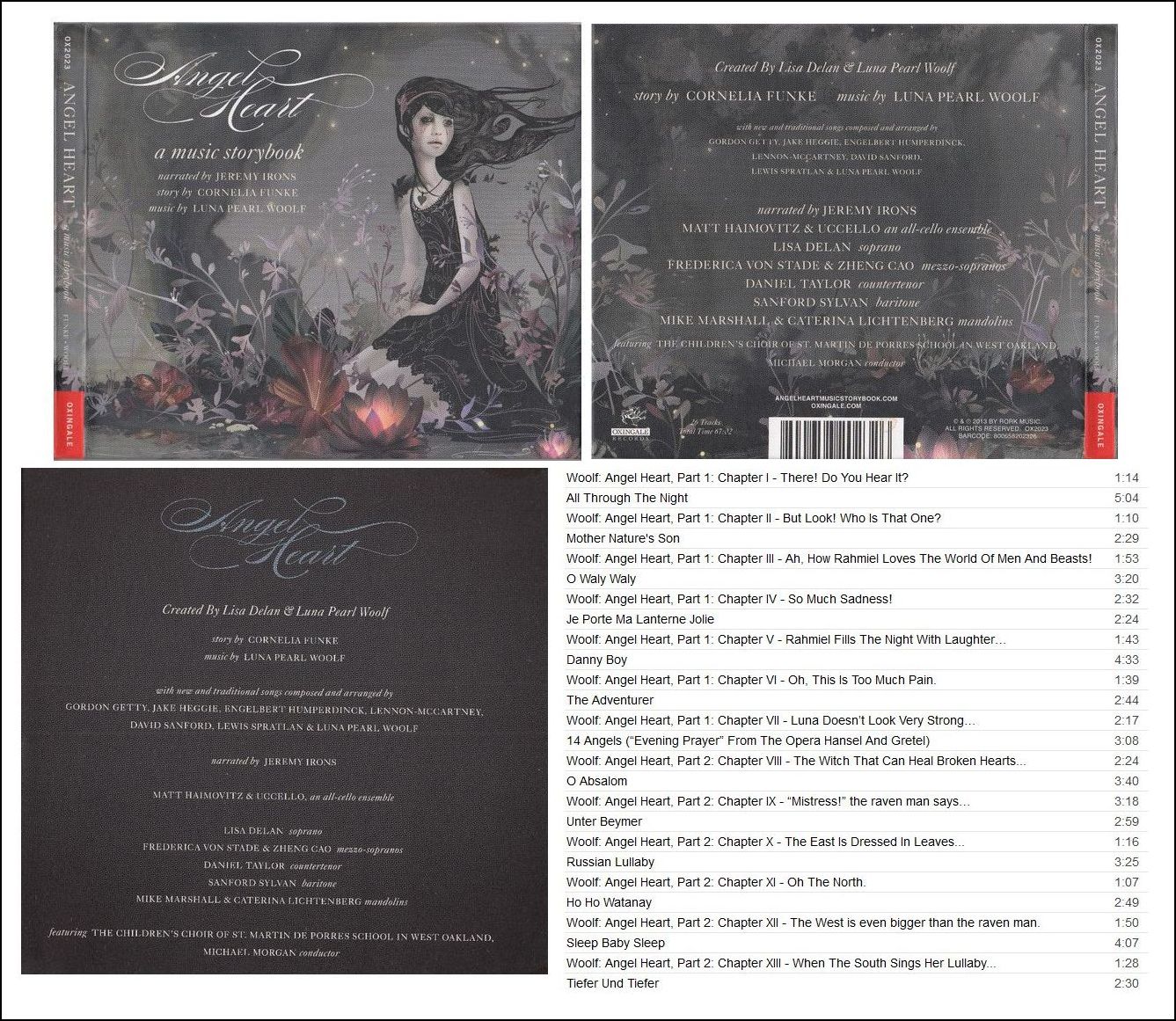
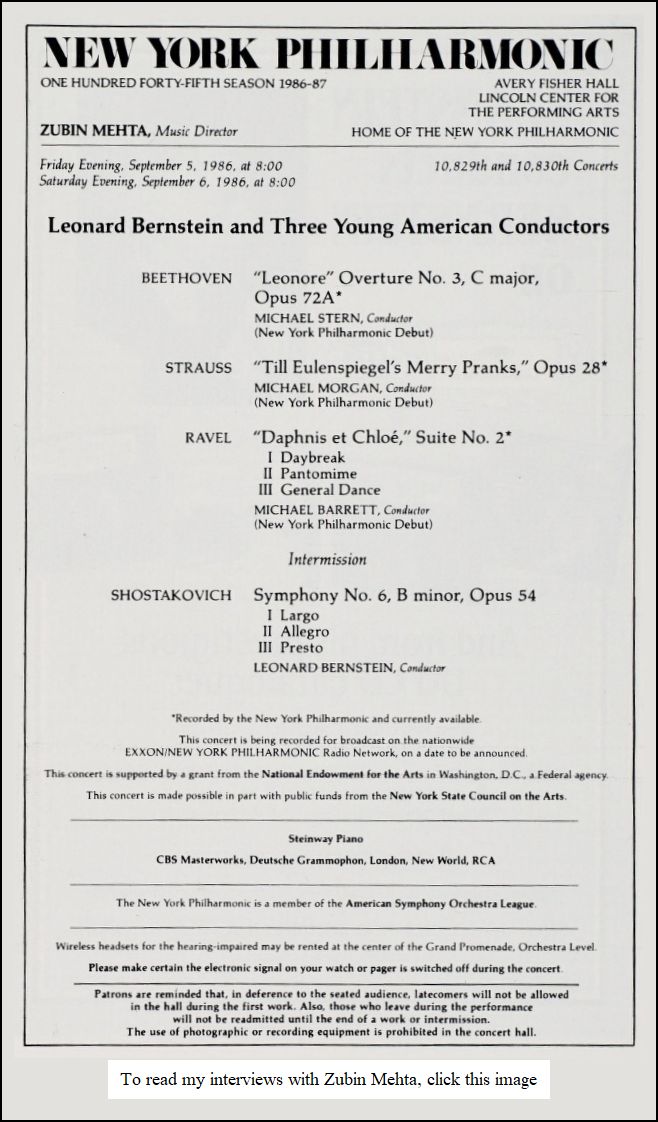
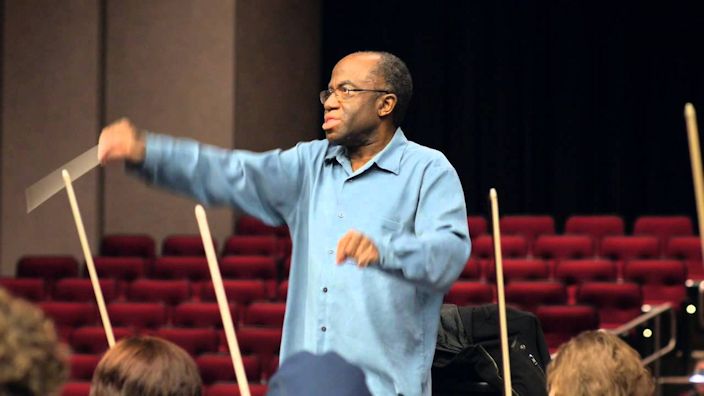
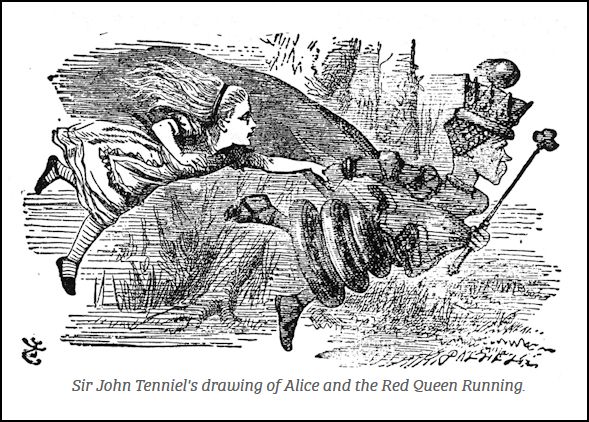
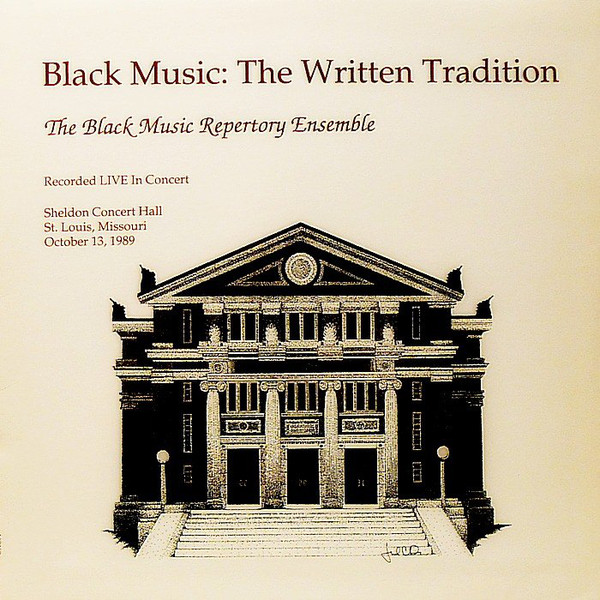
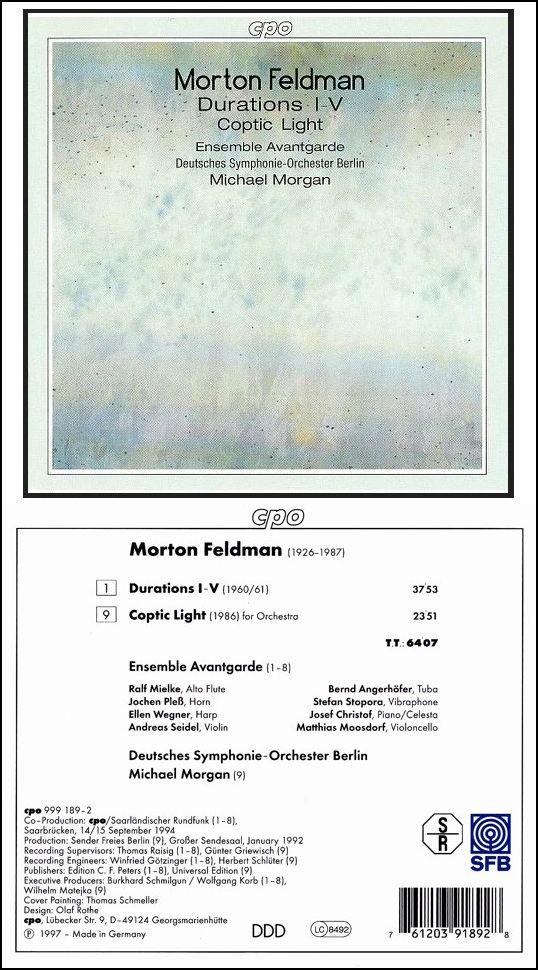
Inspired by their children's summer at Interlochen's
National Music Camp, a group of parents formed the Youth Orchestra of
Greater Chicago (now called the Chicago Youth Symphony Orchestra) in 1946
with the founding principle of providing a superior music experience to
talented high-school musicians. In the decades following the first concert,
conducted by Harold Finch on November 14, 1947, the organization grew to
consist of a 120-piece symphony orchestra drawn from around 50 area high
schools. Conductors have included Désiré Defauw (1954–1958),
Michael Morgan (1989–1993), and Rossen Milanov (1998–), and many alumni
play in professional ensembles nationwide and throughout the world. Tours
to Europe and Japan, radio broadcasts, recordings, and awards, including
Orchestra of the Year (1993) by the Illinois Council of Orchestras and
an ASCAP for adventurous programming (1994 and 1995), have elevated the
CYSO's status to among the finest youth training ensembles in the country.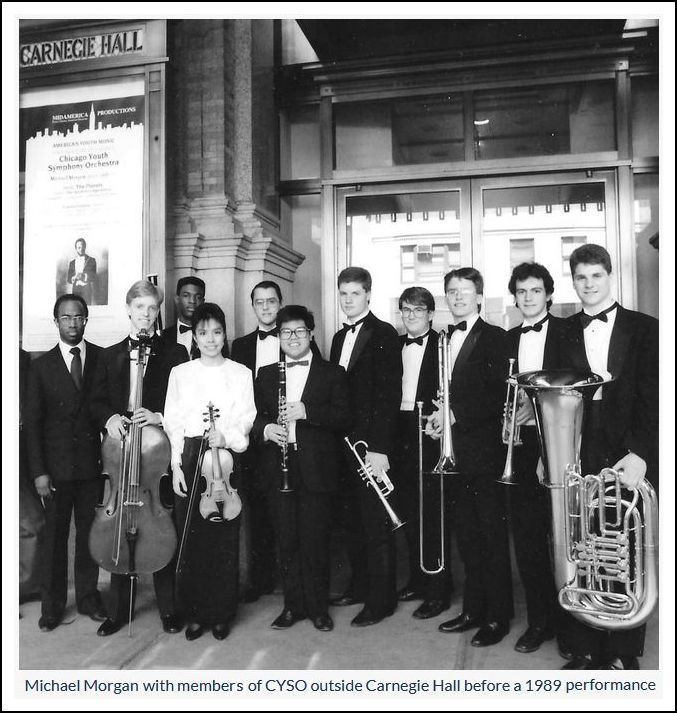
|
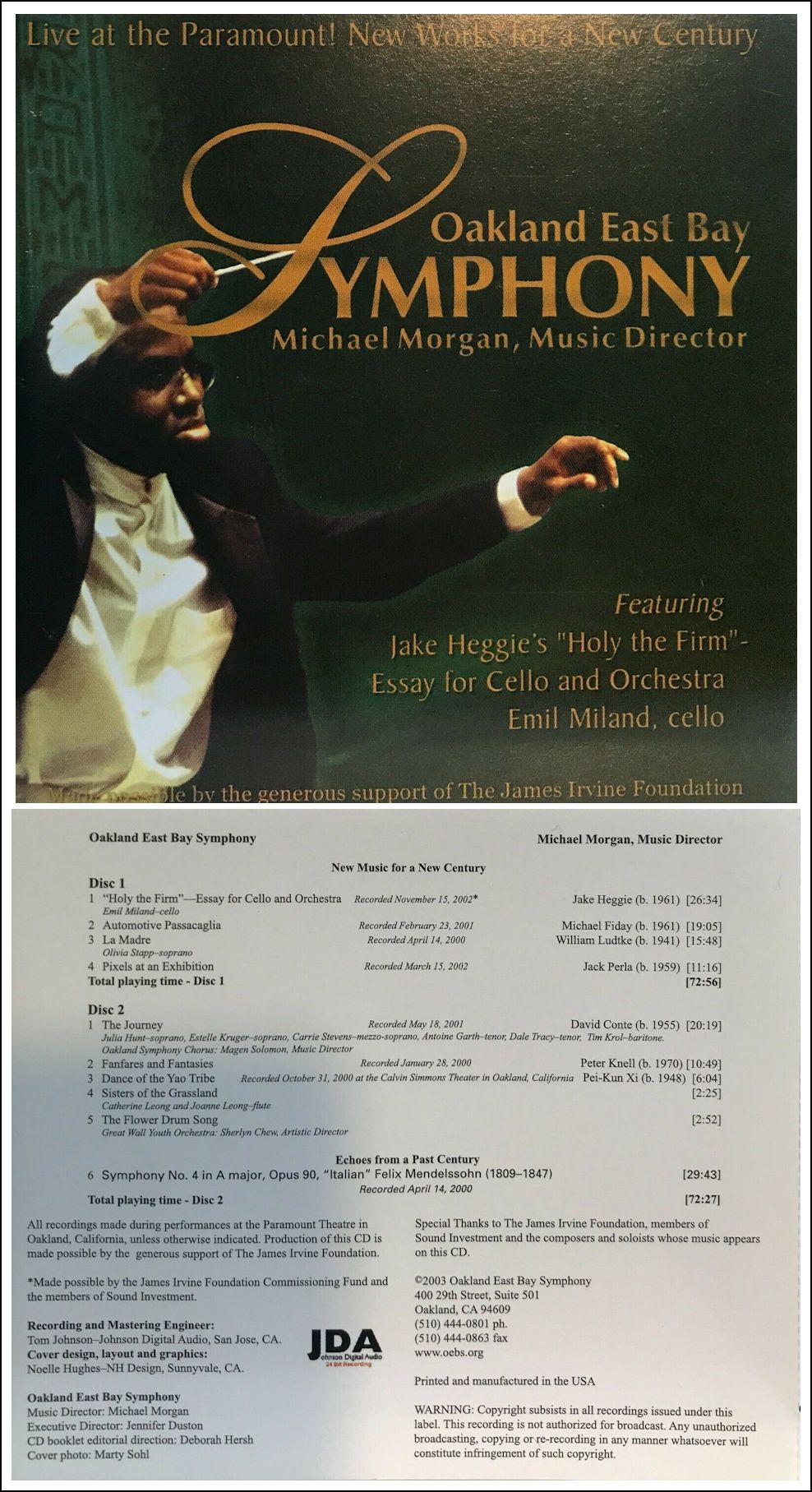
|
In 1980, he won first prize in the Hans Swarovsky International
Conductors Competition in Vienna, Austria and became Assistant Conductor
of the St Louis Symphony Orchestra under
Leonard Slatkin.
His operatic debut was in 1982 at the Vienna
State Opera in Mozart’s “The Abduction from the
Seraglio”. In 1986, Sir Georg Solti chose him to become
the Assistant Conductor of the Chicago Symphony Orchestra
a position he held for five years under both Georg Solti
and Daniel Barenboim. He became music director of
the Oakland East Bay Symphony in 1990. Maestro Morgan
serves as artistic director of the Oakland Youth Orchestra,
and was the music director of the Sacramento Philharmonic
Orchestra (and the Sacramento Opera) from 1999-2015 and
artistic director of Festival Opera in Walnut Creek, California
for more than 10 seasons. He teaches the graduate conducting
course at the San Francisco Conservatory of Music and is
Music Director at the Bear Valley Music Festival in California.
In 2002 and 2003 he taught conducting at the Tanglewood
Music Center and has led conducting workshops around the country.
As Stage Director he has led productions of the Bernstein Mass at the Oakland East Bay Symphony and a modern staging of Mozart’s Don Giovanni at Festival Opera, where he has also staged Britten’s A Midsummer Night’s Dream and Gounod’s Faust. As a chamber musician (piano) he has appeared on the Chamber Music Alive series in Sacramento as well as the occasional appearance in the Bay Area. As a guest conductor he has appeared with most of America’s major orchestras including the New York Philharmonic, National Symphony, Baltimore Symphony, Philadelphia Orchestra, Atlanta Symphony, Alabama Symphony, Houston Symphony, Los Angeles Philharmonic, Seattle Symphony, San Francisco Symphony, Pittsburgh Symphony, Detroit Symphony, Vancouver Symphony, Winnipeg Symphony, Edmonton Symphony and Omaha Symphony. He was Music Advisor to the Peoria during their most recent conductor search. As conductor of opera he has performed with St. Louis Opera Theater, New York City Opera (in New York and on tour), and the Staatsoper in Berlin. Abroad he has conducted orchestras in Europe, South America, the Middle East (Israel and Egypt) and even the Kimbaguiste Symphony Orchestra in Kinshasa, Democratic Republic of Congo. In 2005 he was honored by the San Francisco Chapter of The Recording Academy with the 2005 Governor’s Award for Community Service. On the opposite coast, the American Society of Composers, Authors and Publishers (ASCAP) chose Morgan as one of its five 2005 Concert Music Award recipients. ASCAP further honored Oakland East Bay Symphony in 2006 with its Award for Adventurous Programming. The San Francisco Foundation honored him with one of its Community Leadership Awards and he received an Honorary Doctorate from Holy Names University in Oakland,CA. In 2014 he gave a TEDx Talk and was featured by Musical America as one of their “Profiles of Courage”. He has served on the boards of the League of American Orchestras
and the International House at the University
of California, Berkeley, and the National Guild of
Community Schools of the Arts. Currently he is on
the boards of the Purple Silk Music Education Foundation,
the Oaktown Jazz Workshops, and the Mathematical Sciences
Research Institute. == Biography above is from the John Gingrich Management website. == The item below is from Georgia Voice, March 15, 2013. == The last item is from various obituaries.
Morgan is homosexual. He has said that "Being
a classical musician, being a conductor, being
black, being gay – all of these things put you on the
outside, and each one puts you a little further out than the
last one" and that "you get accustomed to constructing your
own world because there are not a lot of clear paths to follow
and not a lot of people that are just like you".
For the last seven years of his life Morgan was on daily kidney dialysis. He received a kidney transplant in May 2021, but contracted an infection, and died on August 20, 2021 at the age of 63. |
© 1993 Bruce Duffie
This conversation was recorded at Orchestra Hall in Chicago on January 11, 1993. Portions were broadcast on WNIB the following May, and again in 1997. This transcription was made in 2022, and posted on this website at that time. My thanks to British soprano Una Barry for her help in preparing this website presentation.
To see a full list (with links) of interviews which have been transcribed and posted on this website, click here. To read my thoughts on editing these interviews for print, as well as a few other interesting observations, click here.
Award - winning broadcaster Bruce Duffie was with WNIB, Classical 97 in Chicago from 1975 until its final moment as a classical station in February of 2001. His interviews have also appeared in various magazines and journals since 1980, and he now continues his broadcast series on WNUR-FM, as well as on Contemporary Classical Internet Radio.
You are invited to visit his website for more information about his work, including selected transcripts of other interviews, plus a full list of his guests. He would also like to call your attention to the photos and information about his grandfather, who was a pioneer in the automotive field more than a century ago. You may also send him E-Mail with comments, questions and suggestions.